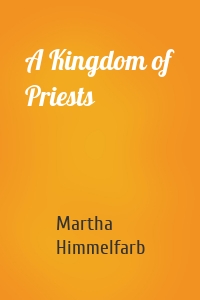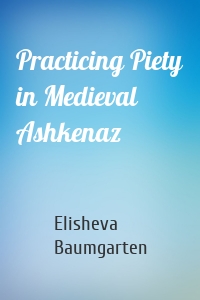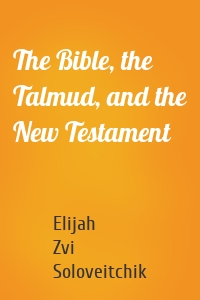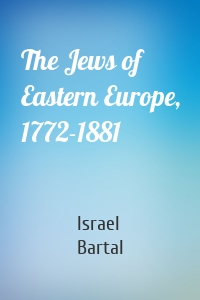Серия "Jewish Culture and Contexts"
10 кн.Скачать лучшие книги серии Jewish Culture and Contexts - автор Anita Shapira в формате fb2 или читать онлайн, бесплатно и без регистрации. Читаемые, полные версии книг, без сокращений - на сайте Knigism.online. Скачать книги полностью в количестве 10 шт.
Yigal Allon, Native Son
Born in 1918 into the fabric of Arab-Jewish frontier life at the foot of Mt. Tabor, Yigal Allon rose to become one of the founding figures of the state of Israel and an architect of its politics. In 1945 Allon became commander of the Palmah—an elite unit of the Haganah, the semilegal army of the Jewish community—during the struggle against the British for independence. In the 1947-49 War of Independence against local and invading Arab armies, he led the decisive battles that...
| Автор | Anita Shapira |
Sanctifying the Name of God
How are martyrs made, and how do the memories of martyrs express, nourish, and mold the ideals of the community? Sanctifying the Name of God wrestles with these questions against the background of the massacres of Jews in the Rhineland during the outbreak of the First Crusade. Marking the first extensive wave of anti-Jewish violence in medieval Christian Europe, these «Persecutions of 1096» exerted a profound influence on the course of European Jewish history. When the crusaders demanded that...
| Автор | Jeremy Cohen |
A Kingdom of Priests
According to the account in the Book of Exodus, God addresses the children of Israel as they stand before Mt. Sinai with the words, «You shall be to me a kingdom of priests and a holy nation» (19:6). The sentence, Martha Himmelfarb observes, is paradoxical, for priests are by definition a minority, yet the meaning in context is clear: the entire people is holy. The words also point to some significant tensions in the biblical understanding of the people of Israel. If the entire people is holy,...
| Автор | Martha Himmelfarb |
A Sufi-Jewish Dialogue
Written in Judeo-Arabic in eleventh-century Muslim Spain but quickly translated into Hebrew, Bahya Ibn Paquda's Duties of the Heart is a profound guidebook of Jewish spirituality that has enjoyed tremendous popularity and influence to the present day. Readers who know the book primarily in its Hebrew version have likely lost sight of the work's original Arabic context and its immersion in Islamic mystical literature. In A Sufi-Jewish Dialogue , Diana Lobel explores the full extent...
| Автор | Diana Lobel |
The Jewish Enlightenment
At the beginning of the eighteenth century most European Jews lived in restricted settlements and urban ghettos, isolated from the surrounding dominant Christian cultures not only by law but also by language, custom, and dress. By the end of the century urban, upwardly mobile Jews had shaved their beards and abandoned Yiddish in favor of the languages of the countries in which they lived. They began to participate in secular culture and they embraced rationalism and non-Jewish education as...
| Автор | Shmuel Feiner |
Maimonides and the Merchants
The advent of Islam in the seventh century brought profound economic changes to the Jews living in the Middle East, and Talmudic law, compiled in and for an agrarian society, was ill equipped to address an increasingly mercantile world. In response, and over the course of the seventh through eleventh centuries, the heads of the Jewish yeshivot of Iraq sought precedence in custom to adapt Jewish law to the new economic and social reality. In Maimonides and the Merchants , Mark R. Cohen reveals...
| Автор | Mark R. Cohen |
Practicing Piety in Medieval Ashken...
In the urban communities of medieval Germany and northern France, the beliefs, observances, and practices of Jews allowed them to create and define their communities on their own terms as well as in relation to the surrounding Christian society. Although medieval Jewish texts were written by a learned elite, the laity also observed many religious rituals as part of their everyday life. In Practicing Piety in Medieval Ashkenaz , Elisheva Baumgarten asks how Jews, especially those who were not...
| Автор | Elisheva Baumgarten |
The Bible, the Talmud, and the New...
Born in Slutzk, Russia, in 1805, Elijah Zvi Soloveitchik is a largely forgotten member of the prestigious Soloveitchik rabbinic dynasty. Before Hayyim Soloveitchik developed the standard Brisker method of Talmudic study, or Joseph Dov Soloveitchik helped to found American Modern Orthodox Judaism, Elijah Soloveitchik wrote Qol Qore , a rabbinic commentary on the Gospels of Matthew and Mark. Qol Qore drew on classic rabbinic literature, and particularly on the works of Moses Maimonides, to...
| Автор | Elijah Zvi Soloveitchik |
This Noble House
This Noble House explores the preoccupation with biblical genealogy that emerged among Jews in the Islamic Near East between the eleventh and fourteenth centuries. Arnold Franklin looks to Jewish society's fascination with Davidic ancestry, examining the profusion of claims to the lineage that had already begun to appear by the year 1000, the attempts to chart the validity of such claims through elaborate genealogical lists, and the range of meanings that came to be ascribed to the House...
| Автор | Arnold E. Franklin |
The Jews of Eastern Europe, 1772-18...
In the nineteenth century, the largest Jewish community the modern world had known lived in hundreds of towns and shtetls in the territory between the Prussian border of Poland and the Ukrainian coast of the Black Sea. The period had started with the partition of Poland and the absorption of its territories into the Russian and Austro-Hungarian empires; it would end with the first large-scale outbreaks of anti-Semitic violence and the imposition in Russia of strong anti-Semitic legislation. In...
| Автор | Israel Bartal |











